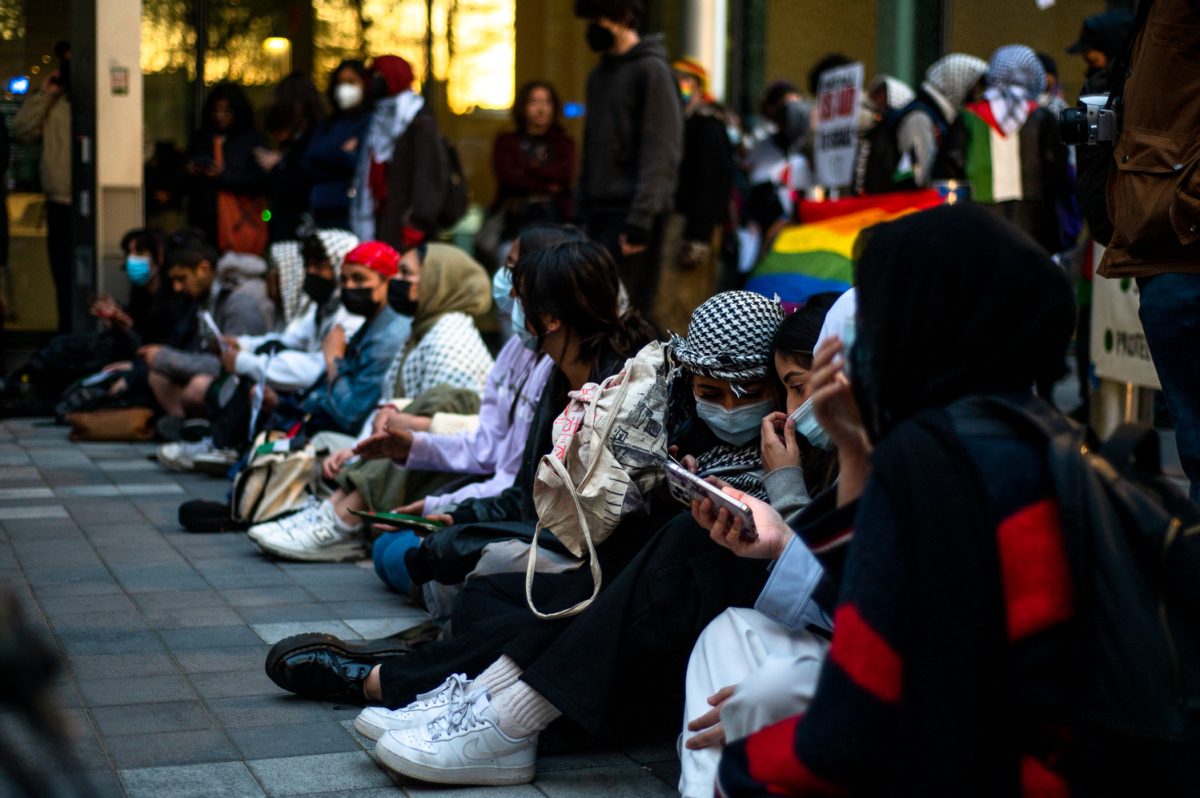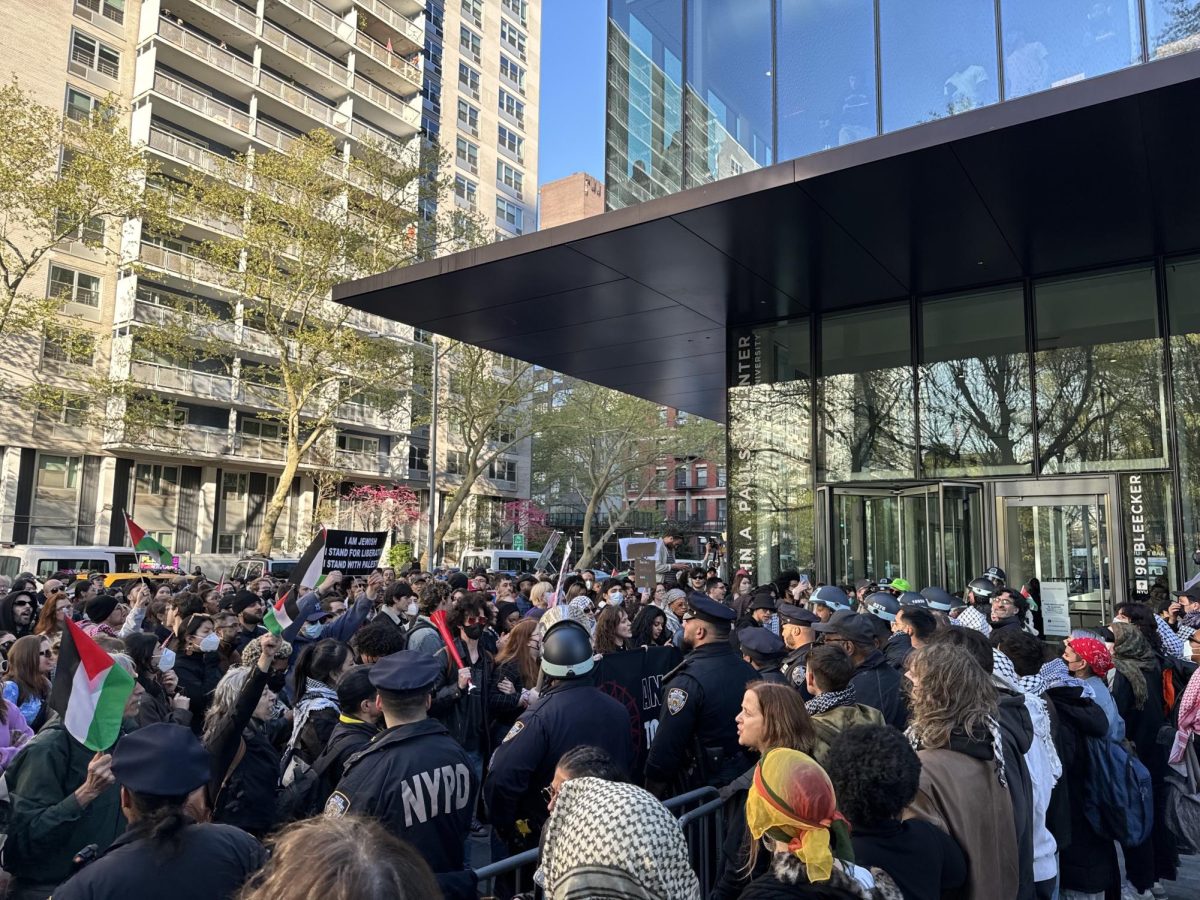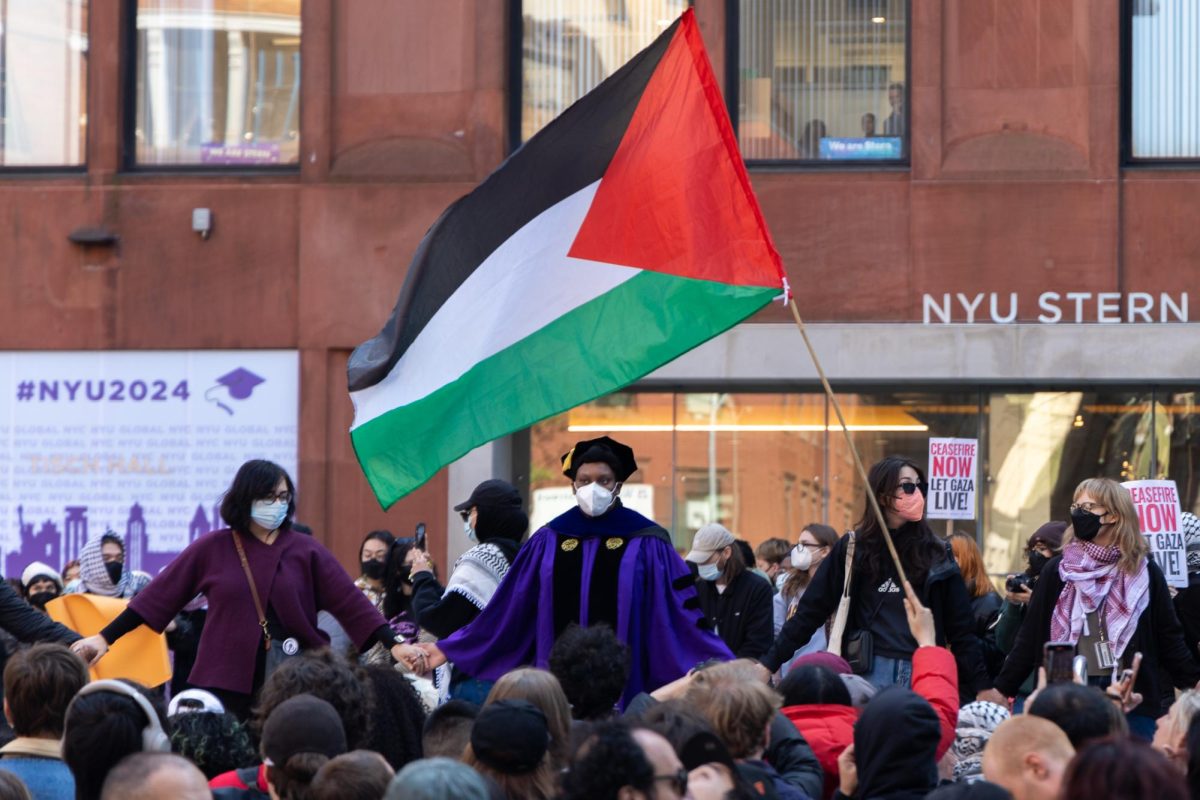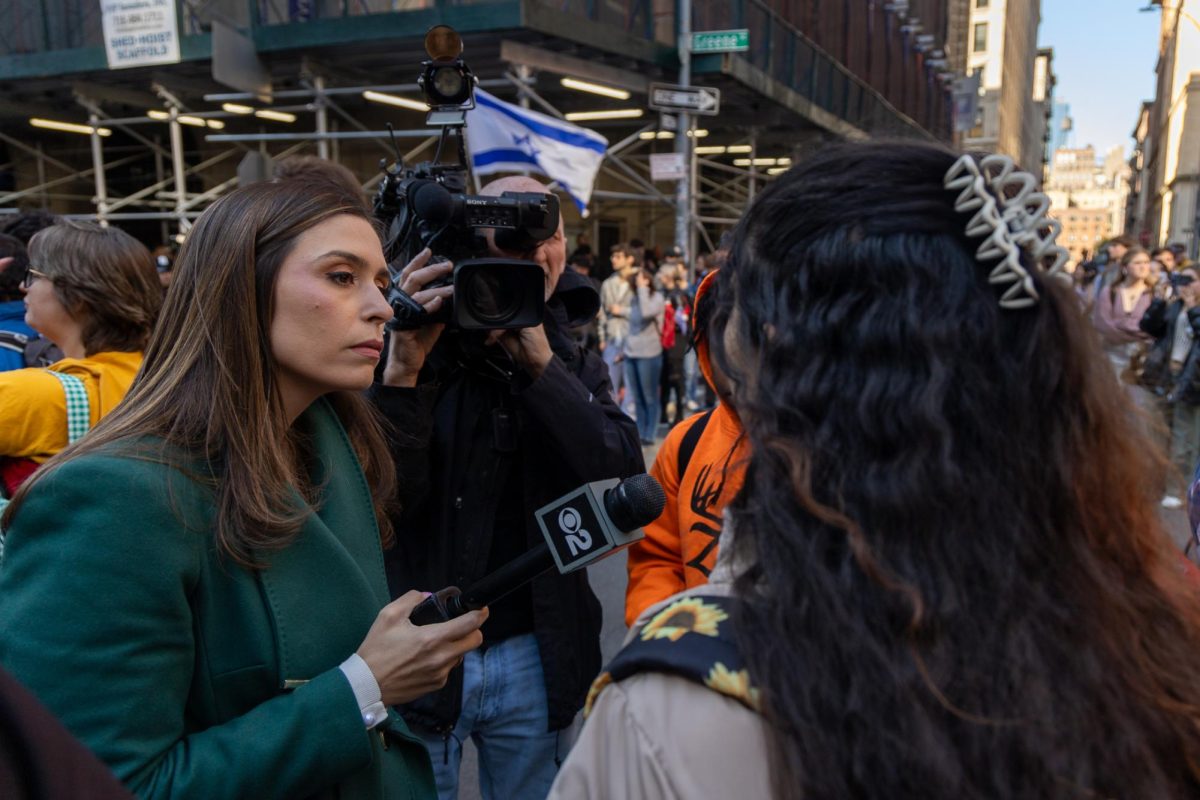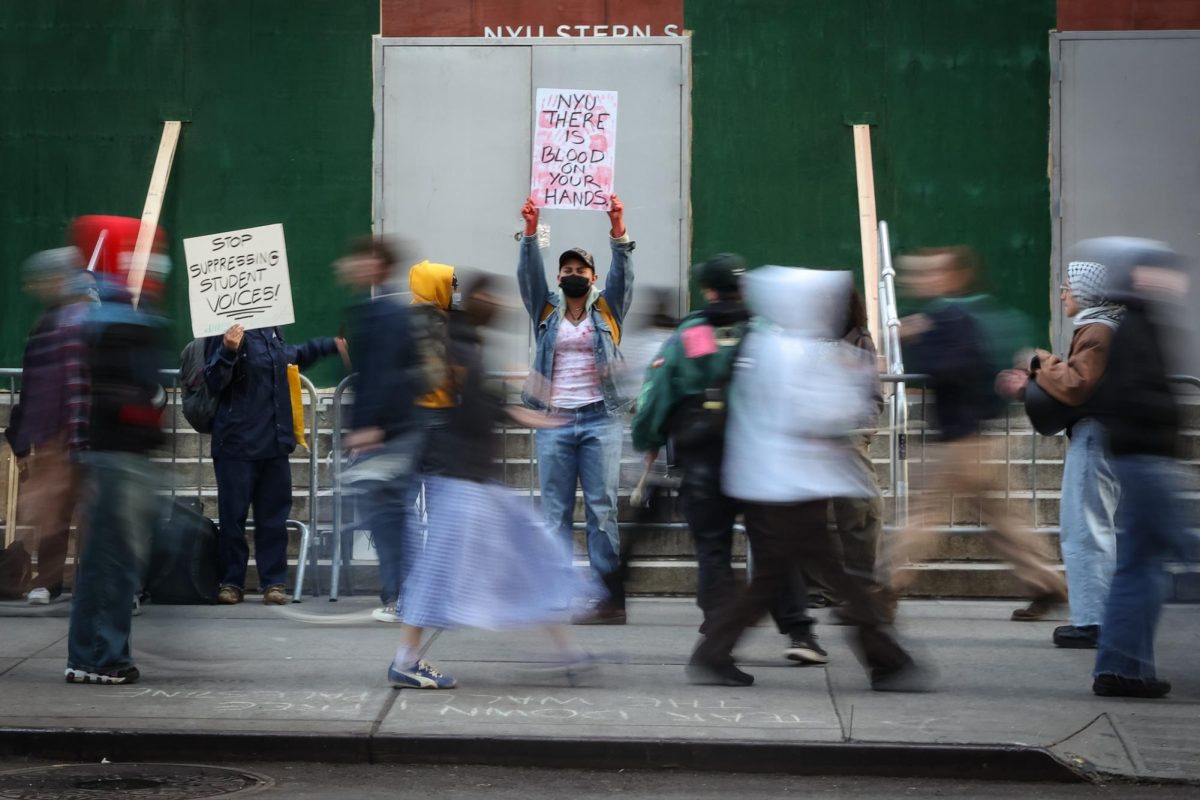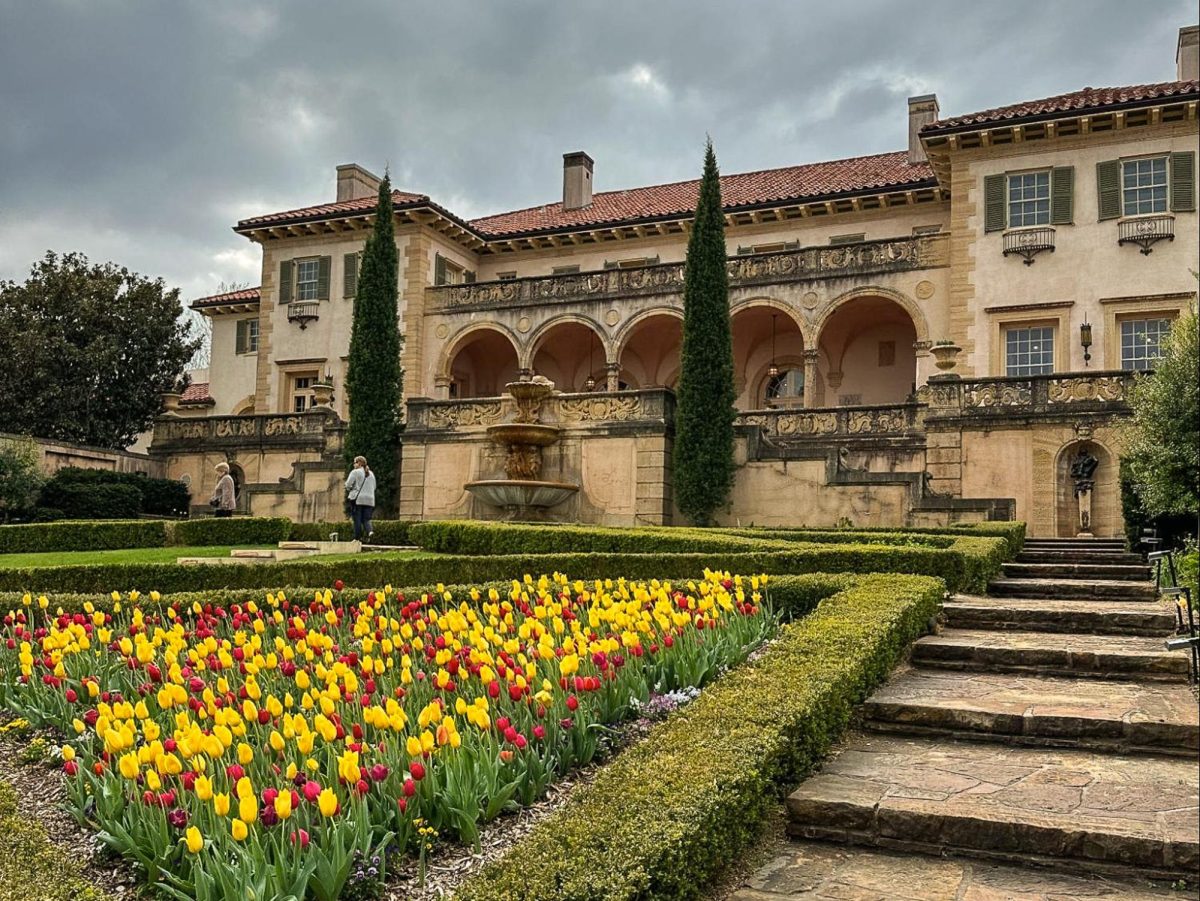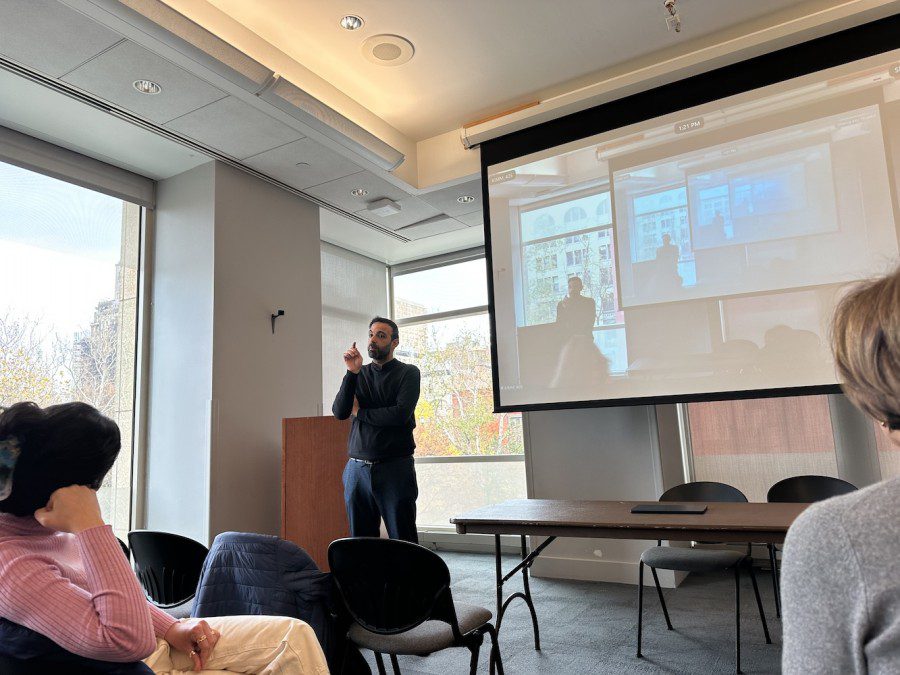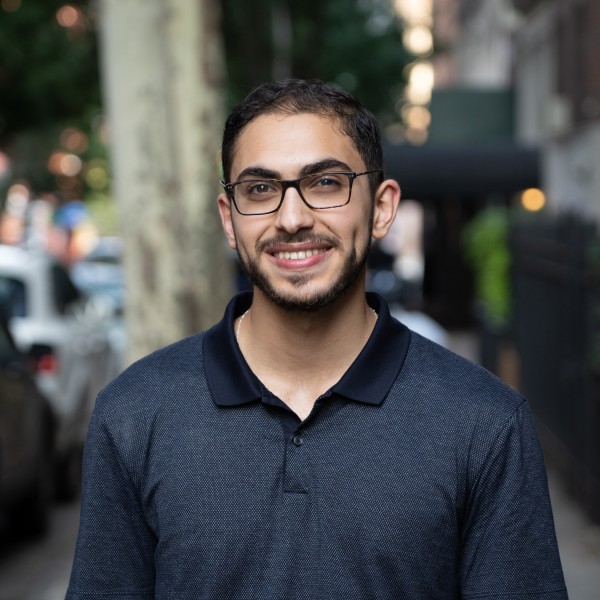Palestinian professor discusses colonialism, higher education at SJP event
A Birzeit University professor spoke to NYU students and faculty about the history and issue of higher education in Palestine under colonial rule.
The campus group Students for Justice in Palestine at NYU hosted Palestinian scholar Rami Salameh, who discussed academic freedom, on Dec. 5. (Yezen Saadah for WSN)
December 6, 2022
Palestinian scholar Rami Salameh, the chair of philosophy and cultural studies at Birzeit University, spoke to the NYU community about academic limitations on higher education in Palestine under Israeli occupation. Dozens attended the conversation, which was organized by NYU Students for Justice in Palestine, at the Kimmel Center for University Life on Monday, Dec. 5.
“The story of higher education in Palestine is a clear example of how colonial power works ruthlessly to hinder and control the development of Palestinian higher education,” Salameh said.
Salameh explained the historical context behind today’s military surveillance of Palestinian universities in the occupied West Bank. He first acknowledged the lack of Palestinian higher education during British colonial rule and the collapse of the education system entirely after Israel’s establishment in 1948. He said that after Israel occupied the West Bank and Gaza Strip in 1967, they began establishing different educational policies and using them to control Palestinian admission to Israeli institutions.
“Palestinians had limited access to Israeli universities and institutes,” Salameh said. “Admissions at the beginning were very restrictive, selective and biased. High articulation results and psychometric entrance tests were used to exclude Palestinians from higher education and academic life in Israel. Such regulation was, in fact, part of formal structure policies that block Palestinians from accessing higher education institutions for generations.”
Birzeit University, where Salameh is also an assistant professor, was established in 1972 as the first Arab university to offer four-year academic programs in Palestine. Salameh added that initial desires for an Arab university in Palestine were overshadowed by Israel’s fear of cultural, political and territorial autonomy among Palestinian students and academics. This forced some Palestinians to enroll in nearby Arab universities — particularly in Jordan — or pursue higher education globally before Birzeit University was established.
He also described how access to universities strengthened Palestinian national identity, explaining that he believes many Palestinians today view higher education as crucial in their struggle for resistance and self-determination. He added that military and mobility restrictions in the occupied Palestinian territories have affected the daily lives of students and academics alike.
“Often, Gaza students — until today — are not allowed to study in West Bank universities,” Salameh said. “Hundreds of checkpoints and roadblocks were installed around Palestinian cities and villages. Constant and extended curfews were imposed, paralyzing all aspects of life including education and university.”
In an interview with WSN, Salameh described his vision for the future of higher education in Palestine. He said that he hopes for future institutions to act as examples of what critical knowledge should be as well as change current education systems into just and moral ones.
“All spaces of resistance are important,” Salameh said. “Students for Justice in Palestine is doing a great job, and I’m more than happy to raise more awareness about Palestine — not as an identity, but rather as an experience in relation to power, control and subjugation.”
Ito Choho, a Tisch senior and a member of SJP who helped to organize the event, told WSN that the issue of academic freedom in Palestine is incredibly important to NYU due to the university’s immense global presence and resources. She stressed the importance of standing in solidarity with scholars and students in Palestine who struggle to attain higher education.
“We may be very knowledgeable about the big-picture situation in Palestine and do our best to spread that information on campus, but we rarely get to hear from people experiencing the occupation day to day,” Choho said. “It’s important to hear from them to understand what we are fighting for.”
Contact Yezen Saadah at [email protected].

